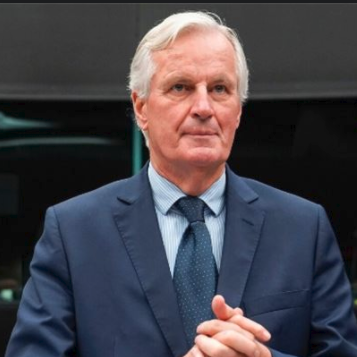What is a level playing field?

As we approach the ultra-final round of discussions, it may be useful to set out what the level playing field argument is actually about. Leaving emotions aside, it’s not essentially an argument about muscle-flexing or sovereignty, but a practical choice.
In general, I’m a reformist – I like seeing countries take the initiative to make changes that other countries may not be ready for. Otherwise, reforms take much longer, as you have to hang around waiting for everyone to agree. It is easier to get improvements if you don’t have to persuade a whole continent at once.
But there’s a snag. Assume for the sake of argument that you want to do something that makes your goods more expensive – higher environmental standards, better animal welfare, higher minimum wage, whatever. Let’s not argue about whether these things are good – assume that you think they are and indeed that you’ve been elected to carry them out. The problem is that if your reform makes goods more expensive, you have four choices:
(1) Persuade consumers to buy your stuff even though it’s more expensive (tends not to work for many consumers)
(2) Accept that your competitors with cheaper/nastier products will undermine your industry (ruinous)
(3) Introduce tariffs to protect your industry (raises prices and reduces efficiency)
(4) Only carry out the reform if all your main trading partners accept the reform too (difficult and also raises prices).
The EU status quo is essentially (4). Major reforms require cross-EU agreement, making them slow to implement but ultimately very effective – e.g. collective agreement on new car emission standards.
Post-Brexit, the EU proposal is essentially (4) with (3) as a fallback, and it applies both ways – whether we or they make the improvement. It makes domestic consumers pay for whatever improvement has been decided on.
The British position is essentially (2) with a nod to (1). We’re fine with the EU raising standards if they want to, but we reserve the right to undercut them by refusing to follow suit. If they can persuade their consumers not to buy our cheap stuff, that’s their free choice, but otherwise we profit at their expense. The reverse is true if we raise standards.
By choosing Brexit, we have in principle renounced (4) – the Government wants Britain to be free to reform if we feel like it, not by continent-wide negotiation. Because they are at heart more free-market than reformist, they anyway naturally gravitate to (2). If you tend not to want constant Government-led reforms and like change to come from market innovation, you essentially feel that someone who insists on reforms should pay the price in losing market share.
But the EU is based on (4), and it’s fundamentally problematic to simultaneously withdraw from an association and insist that it should change the basis on which it was founded. The British position is therefore simply difficult to achieve regardless of its merits. A compromise, if there is one, will need to be that (4)/(3) are the default but that (2) can be negotiated from case to case, allowing gradual deviation in standards in which the partners amicably agree that in each case it doesn’t matter very much. That, arguably, preserves the spirit of Brexit while not in the short term changing very much. I’m not recommending it because I’m not a Brexiteer, but objectively I think it’s the only way through.
Nick Palmer
Nick Palmer was Labour MP for Broxtowe, 1997-2010 and remains active in Labour politics.